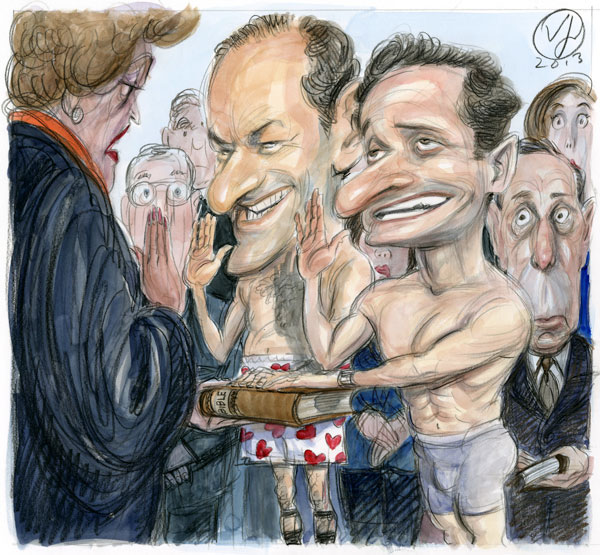Here in NYC we are in the midst of elections for mayor and comptroller.
Not sure if the rest of the world is paying attention, but New Yorkers are quite mesmerized by a couple of our choices: our former Congressman Anthony Weiner and our former Governor, Eliot Spitzer. Weiner was busted for showing his wiener on the Internet, and Spitzer for hiring prostitutes.

We all like a good show, and perhaps New Yorkers in particular. And many people love seeing big, arrogant egos fall hard (although Spitzer is doing surprisingly well and may not fall at all!)
And while that is entertaining for many, another, more intriguing form of failure comes from the individuals themselves: people who love to fail.
What they understand that others don’t is this passion to fail often creates something far better for them. For it is from this is where the UnReasonable is achieve and progress and growth occurs.
Reality is Broken, a New York Times Bestseller by Jane McGonigal illustrates this wonderfully. McGonigal, a PhD and world-renowned expert in using electronic / video games for social change, writes about how this phenomenon is crucial to society’s advancement.
Why People Love to Fail (in Games)
McGonigal argues that in well-designed games like World of Warcraft (played by hundreds of millions of people around the world), as well as many “casual” games like Solitaire, it is the failures that keep people engaged and happy.
And not the wins. In fact, when you win consistently, you get bored and move on to something else.
Why?
Because, according to Reality is Broken three things occur in well-designed games:
- Failing spectacularly is entertaining—failures are made fun and often times, funny.
- Failing is a badge of honor—people brag about how intense and close they got just before they failed.
- Failing creates instant feedback—it is all about your score and progress reports on how close you got, and what needs to be improved to do better next time.
According to McGonigal and other experts, failing is crucial in keeping the fun going.
Research on this shows unless continually challenged at the threshold of our maximum capacity, we don’t have fun and get bored quickly.
So it is the failing spectacularly, understanding it is not at all a bad thing and getting clear and immediate feedback that energizes people to try harder and consistently apply themselves in their attempt to achieve the UnReasonable.
By UnReasonable, I mean:
- Thrive as human beings
- Tackle more complex challenges
- Enable people to flourish
- Live at our fullest potential
The good news is that not just the hundreds of millions of gamers in the world can learn from those who learned to embrace their failures in the real world, but all of us can. Well-known embracers of failure include people like Abraham Lincoln, Thomas Edison, Walt Disney, Albert Einstein, Colonel Sanders and Michael Jordan among many others.
They all understood:
- It takes failures to move ahead, often the bigger the better. People who love sales understand this better than anyone. For each “no” they get from a prospect, they are one step closer to their “yes”.
- Failures are more important than successes. As any entrepreneur that has been coached or trained by me knows, I would much rather work with, or invest in someone who has taken a company into bankruptcy. The lessons learned are far greater than any MBA could possibly provide.
- Feedback is king. Those committed to being masters of their domain are always learning from their actions. Have a mentor, trainer, coach and/or advisor making sure you are leveraging and learning all you can.
Embrace failure. Learn to love it. For it is the best friend and teacher you will ever have. And when you fail, fail hard. That means you are swinging for the fences and playing full out.
From this, you too will achieve the UnReasonable!
Action Steps for the Week
Where have you been afraid to fail? You know, that big project you’ve been telling yourself “Now is not the right time”?
Take a look at what the worst thing that can happen to you if you fail. What would happen if that happened?
How would you recover? What would be the outcome from going for it and failing?
And what is the likelihood that will happen (on a scale of 1 – 10, 10 being 100%).
Now compare that to really going for that big project. Answer the same questions as above.
Then weigh the consequence of your decision. Compare: if you “go for it”, regardless the consequences, how will feel about yourself vs. if you don’t go for it.
From there, decide and don’t look back!
